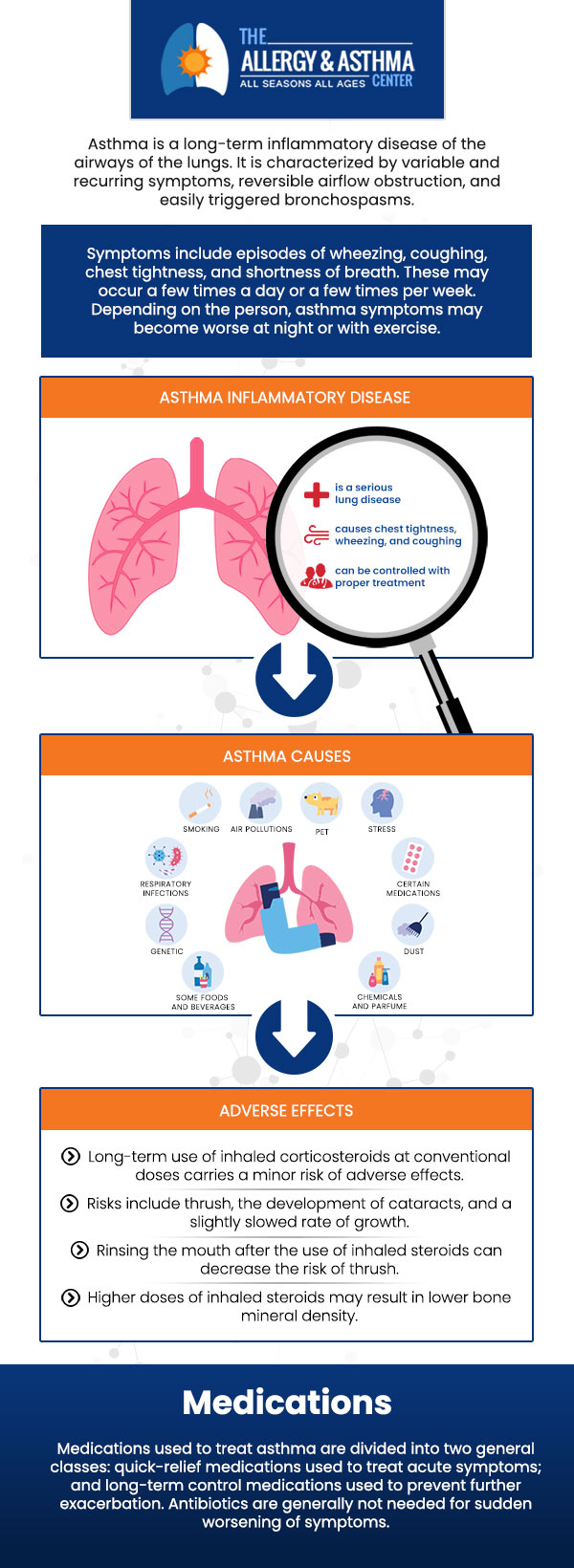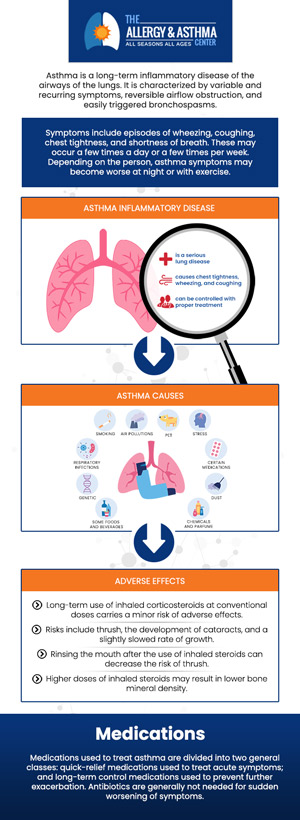Fast Facts: What Women Should Know About Asthma?
Is asthma different in women? Read the fast facts about asthma & women & find out about the impact of female hormones, pregnancy & other factors that affect women & their asthma. For more information, please contact us or book an appointment online. Our allergy & asthma specialists look forward to serving you! We serve patients from Lawrenceville, GA, Atlanta, GA, and Conyers, GA.




Table of Contents:
The trends
What about pregnancy?
What are other factors that affect women and their asthma?
Do women experience asthma differently than men?
The future
Asthma is one of the most common chronic respiratory illnesses. It occurs in both women and men but can affect them differently depending on their age. After puberty, asthma is more common in women and can even be more severe than their male counter parts. Women however see a drop-in asthma rates after menopause and many physicians suspect hormones such as estrogen and progesterone might play a role. Overall, it seems after puberty women struggle more with asthma than men.
It is estimated that 28% of women have improvement in asthma symptoms during pregnancy, 33% have the same control as prior to pregnancy, and 35% have worsening of their asthma symptoms. Based on symptoms, some females need higher or lower concentrations of controller medication. Asthma control is crucial both during pregnancy and at the time of delivery and asthma specialists have worked closely with their obstetric colleagues to find the best and safest medications to help women. When these guidelines are followed most patients do quite well.
A physical factor that plays a big role in asthma is obesity. Leptin is a chemical that is involved with body weight regulation. Interestingly, higher serum leptin levels are associated with obesity, female gender, and asthma. Studies in both genders suggest maintaining a healthy weight is beneficial for asthma control and helping patients use less medication.
In addition to prevalence and severity, the perception of asthma symptoms has also been shown to be different between men and women. Women with asthma tend to report worse quality of life and have a higher rate of depression, anxiety, insomnia and excessive fatigue than men with asthma. Studies have shown that even though women have a higher rate of healthcare utilization and increased need for asthma rescue medications, they have better lung function and similar asthma severity to men. Understanding the gender-specific differences in disease response and symptoms are important to helping improve quality of life and health.
Further studies are being done to obtain more information and provide new insight in those with asthma to help guide future therapies. Regardless of gender, it is important to monitor asthma and make sure that is well-controlled. It is important to see a board-certified allergist and asthma specialist to help identify triggers that may worsen asthma. Board-certified specialists can ensure that patients are on the appropriate preventative and rescue medications that are needed to maintain control.
If you have any additional questions about allergy and asthma, or if you are interested in our services, please do not hesitate to contact the Allergy & Asthma Center today. We have top allergy doctors & staff and 3 allergy clinics in Atlanta, Lawrenceville, & Conyers. For an appointment with one of our board-certified Pediatric or Adult Allergy Specialists please contact us or make your appointment online.

Additional Allergy & Asthma Services
▸ Allergy Shots
▸ Allergy Testing
▸ Asthma
▸ Bronchodilators
▸ Drug Allergy
▸ Food Allergy
▸ Insect Allergy
▸ Nasal/Sinus Allergies
▸ Pediatric Allergy
▸ Pediatric Asthma
▸ Skin Allergy
▸ Spring Allergies




